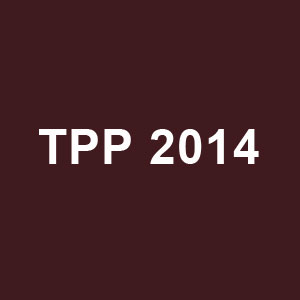Aristotle’s Philosophical Reframing of Greek Tragedy: A New Interpretation of an Old Misunderstanding
Aristotle’s philosophical reframing of Greek tragedy has dominated Western literary and theatrical theory for centuries. Brecht and, more recently, postdramatic theatre, have defined themselves in part by their rejection of Aristotelian (and Hegelian) drama. But rereading the Poetics within the context of Aristotle’s overall philosophy presents a very different picture than the one we are used to. I argue that, like everything else in Aristotle’s theory of immanent form, tragedy must consist of a compound of matter and psuche (form/function). The psuche of tragedy is its form (muthos) in conjunction with its function (catharsis), and the ‘matter’ of tragedy consists in one sense of the actions of people in life (theatre as a representational art), and in another sense of the six elements listed at VI.1450a 7-8: muthos, lexis, melopoiia, ethe, dianoia and opsis (theatre as a performing art). The matter-form/function compound of tragedy has an innate potentiality (dunamis) to progress teleologically from ‘lack’ (steresis) via catharsis to actuality (energeia), and this actuality will (temporarily) approach the incorporeal pure thought of God. Crucially, Aristotle’s tragic mimesis relates not to objects, but to the oppositional forces that infuse Greek mythology, tragedy, and Pre-Socratic philosophy. Indeed, mimesis impersonates rather than represents these forces. But what presents in myth as Ananke (Necessity), with its dichotomous forces eros (love) and eris (strife), becomes in Aristotle ananke esti (it is necessary). I also argue that, contrary to popular and scholarly opinion, Aristotle is very unlikely to have dismissed opsis, or the performance aspects of tragedy, at least not in the sense that he is usually said to have done so. This new understanding of Aristotle’s Poetics is surprisingly reflected not only in Nietzsche’s own reframing of tragedy, but also in postdramatic theatre, despite its fervent disavowing of all things Aristotelian.
Dr. Paul Monaghan is an academic, director, dramaturg, and freelance editor. He completed a PhD in Theatre Studies/Classical Studies, and currently holds the position of Honorary Senior Fellow at the School of Performing Arts, Victorian College of the Arts, University of Melbourne, where from 2009 to 2012 he was Senior Lecturer in Theatre and Head of Postgraduate Studies and Research. Prior to this appointment, Paul lectured in Theatre Studies for 11 years in the School of Creative Arts at the same university. Paul is co-convenor of the Dramaturgies Project, an ongoing series of events and publications exploring aspects of the dramaturgical intelligence, and co-convenor/co-editor of Double Dialogues, an ongoing project linking academic discourse with arts practice.

